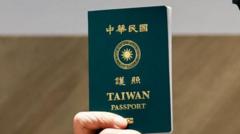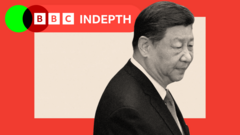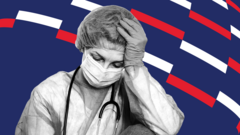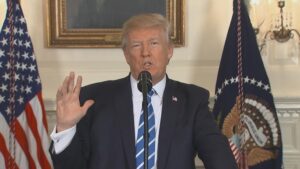Doctors and patients are questioning the safety of generic pharmaceuticals in public hospitals, highlighting the impact on China's healthcare system.
Public Outcry Over Ineffective Generic Drugs Sparks Government Response in China

Public Outcry Over Ineffective Generic Drugs Sparks Government Response in China
Concerns about the reliability of generic drugs lead to rare public anger and calls for reform.
Public concern in China has risen sharply over the effectiveness of generic drugs distributed in state hospitals, leading to an unprecedented wave of public anger. Medical professionals have voiced serious worries, suggesting that the government's cost-saving measures favor cheap generics at the expense of patient safety. Despite the government’s insistence that perceptions of ineffectiveness are largely unfounded and anecdotal, discomfort persists among the populace regarding the quality of their medications.
The controversy was ignited last December when nearly 200 domestic companies were selected to supply medicines to state hospitals, with most being producers of generic drugs. This situation escalated in January when a viral video surfaced, featuring Dr. Zheng Minhua from a Shanghai hospital, detailing various problems linked to these medications—ranging from antibiotics causing allergies to ineffective laxatives. His comments resonated widely, sparking a social media movement that criticized the healthcare system, even as discussions were later suppressed by censors.
With social media users sharing their negative experiences, a significant skepticism regarding generic medications has taken root. Many patients have expressed their preference for brand-name drugs, fearing the quality of cheaper alternatives. Despite efforts from authorities to reassure the public, the trust in generics remains fragile, especially as more people share stories of their ineffective treatments.
The procurement system, which has prioritized the lowest bidding generics since its introduction in 2018, has drawn scrutiny for potentially compromising drug quality. While the program has allegedly saved billions in expenses, critics argue that it incentivized low-cost manufacturing practices that could affect the efficacy of the drugs. A recent proposal from a group of doctors pointed to growing concerns that persistently low prices may prompt unethical practices amongst manufacturers.
The broader context amplifying this crisis is China's rapidly aging population and the resulting strain on its healthcare resources. As health expenditures soar, public sentiment and faith in the medical system are deteriorating, underscoring the need for significant reforms in drug evaluation and procurement strategies. The healthcare authorities acknowledged the rising concerns but face criticism for the perceived inadequacies of their current systems.
As the public outcry continues, experts urge for improved quality control and drug evaluation standards to rebuild trust within the healthcare system and ensure that patients receive safe and effective medications.




















